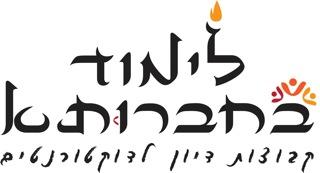Summary of the first meeting- 26.3.25:
During our last meeting, we read and discussed key themes related to selfhood, power, and ethical introspection in De clementia 1.1.1-5. We explored Seneca’s striking metaphor of the mirror (ut quodam modo speculi) as a means for the ruler (Nero) to see himself truthfully. This metaphor initiates a process of self-examination, where the princeps becomes both observer and subject. The result of this internal reflection is not withdrawal, but the development of a bona conscientia—a good conscience—which can be confidently exposed to public view.
We noted Seneca’s invitation to Nero to show mercy towards his subjects seems to align with Paul’s framing of obedience to the emperor in Romans 13, where rulers are likewise subject to divine scrutiny. We also discussed Seneca’s presentation of the emperor as acting deorum vice—in the place of the gods. This theological-political metaphor reinforces the idea that the ruler’s self-governance must mirror divine reason. His actions are not just politically effective but cosmically significant, requiring a disciplined and virtuous animus. Seneca crafts a rhetorical moment in which Nero is invited to speak to himself (et ita loqui secum), reciting a kind of internal monologue about his power and duty. We considered how this may connect back to the mirror: not only does the ruler see himself, but he also learns to speak to himself, cultivating an interior ethical discourse—a Stoic soliloquy of sorts.
Finally, we looked at Seneca’s rejection of imperial precedents like Augustus and Tiberius as moral models. Rather than presenting them as exempla, Seneca subtly discredits them as wearers of masks, suggesting their clemency was theatrical, not sincere. In contrast, Nero is praised for possessing a naturalis bonitas—a natural goodness (cf. the beginning of Liber II, where Seneca praises Nero's spontaneous utterance (Vellem litteras nescirem) as proof of a pure inner disposition). This move shifts the ground from imitation to authentic virtue, implying that true ethical leadership arises not from borrowed façades but from an inwardly consistent self.
מפגש ראשון- 26.3.25
במפגש קראנו ודנו בנושאים מרכזיים הקשורים בזהות עצמית, כוח, ואינטרוספקציה אתית בקטע De clementia 1.1.1–5. בחנו את המטפורה המפתיעה של סנקה — "כמו מעין מראה" (ut quodam modo speculi) — כאמצעי עבור השליט (נירון) לראות את עצמו באמת. מטפורה זו פותחת תהליך של בדיקה עצמית, שבו ה-princeps נעשה גם צופה וגם מושא לצפייה. תוצאת ההשתקפות הפנימית הזו אינה הסתגרות אלא פיתוח של bona conscientia — מצפון טוב — שניתן לחשוף אותו לעין הציבור בביטחון.
שמנו לב לכך שהקריאה של סנקה לנירון לנהוג ברחמים כלפי נתיניו מהדהדת את המסגור של פאולוס לגבי ציות לקיסר ברומים י"ג, שם גם השליטים נתונים לבחינה אלוהית. דנו גם בהצגת הקיסר על ידי סנקה כמי שפועל deorum vice — "במקום האלים". מטפורה תיאולוגית-פוליטית זו מחזקת את הרעיון שעל השליט למשול בעצמו לפי תבונה אלוהית. פעולותיו אינן רק בעלות אפקטיביות פוליטית, אלא גם בעלות משמעות קוסמית, ודורשות animus ממושמע ומוסרי. סנקה יוצר רגע רטורי שבו נירון מוזמן לדבר עם עצמו (et ita loqui secum), כמעין מונולוג פנימי על כוחו וחובתו. שקלנו כיצד הדבר מתקשר למטפורת המראה: השליט לא רק רואה את עצמו, אלא גם לומד לדבר עם עצמו, לטפח שיח אתי פנימי — מעין סולילוקוי סטואי.
לבסוף, התבוננו בדחייתם של תקדימים אימפריאליים כגון אוגוסטוס וטיבריוס כמודלים מוסריים. סנקה אינו מציג אותם כ-exempla, אלא מערער עליהם בעדינות כעוטים מסכות, המרמזות על כך שרחמיהם היו תיאטרליים ולא כנים. לעומתם, נירון זוכה לשבח על כך שהוא בעל naturalis bonitas — טוב לב טבעי (ראו תחילת הספר השני, שבו סנקה משבח את קריאתו הספונטנית של נירון: Vellem litteras nescirem, כראיה לטוהר פנימי). מהלך זה מזיז את מרכז הכובד מחיקוי למוסריות אותנטית, ומרמז שהנהגה אתית אמיתית אינה נובעת ממסיכות שאולות אלא מעצמי פנימי ועקבי.

